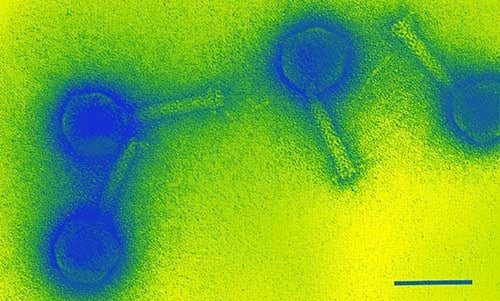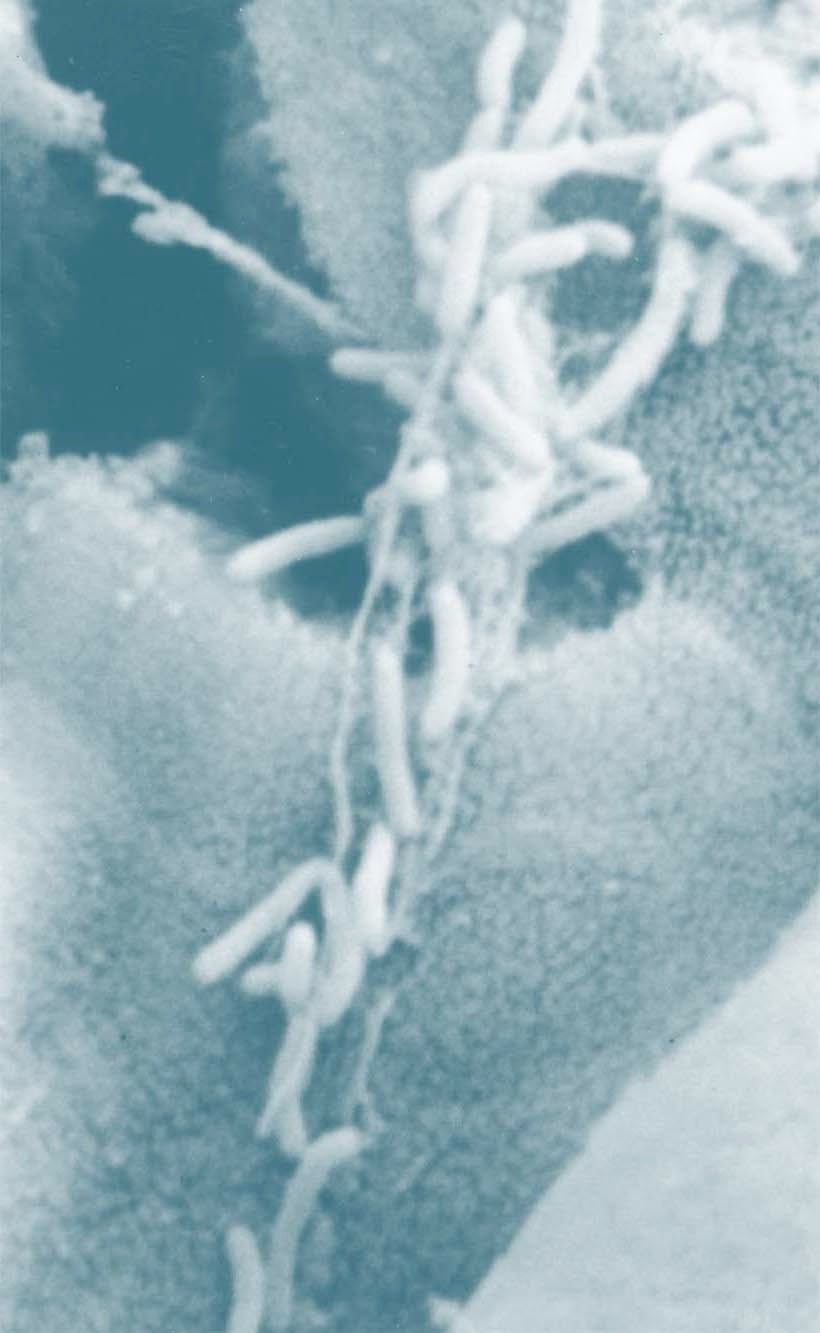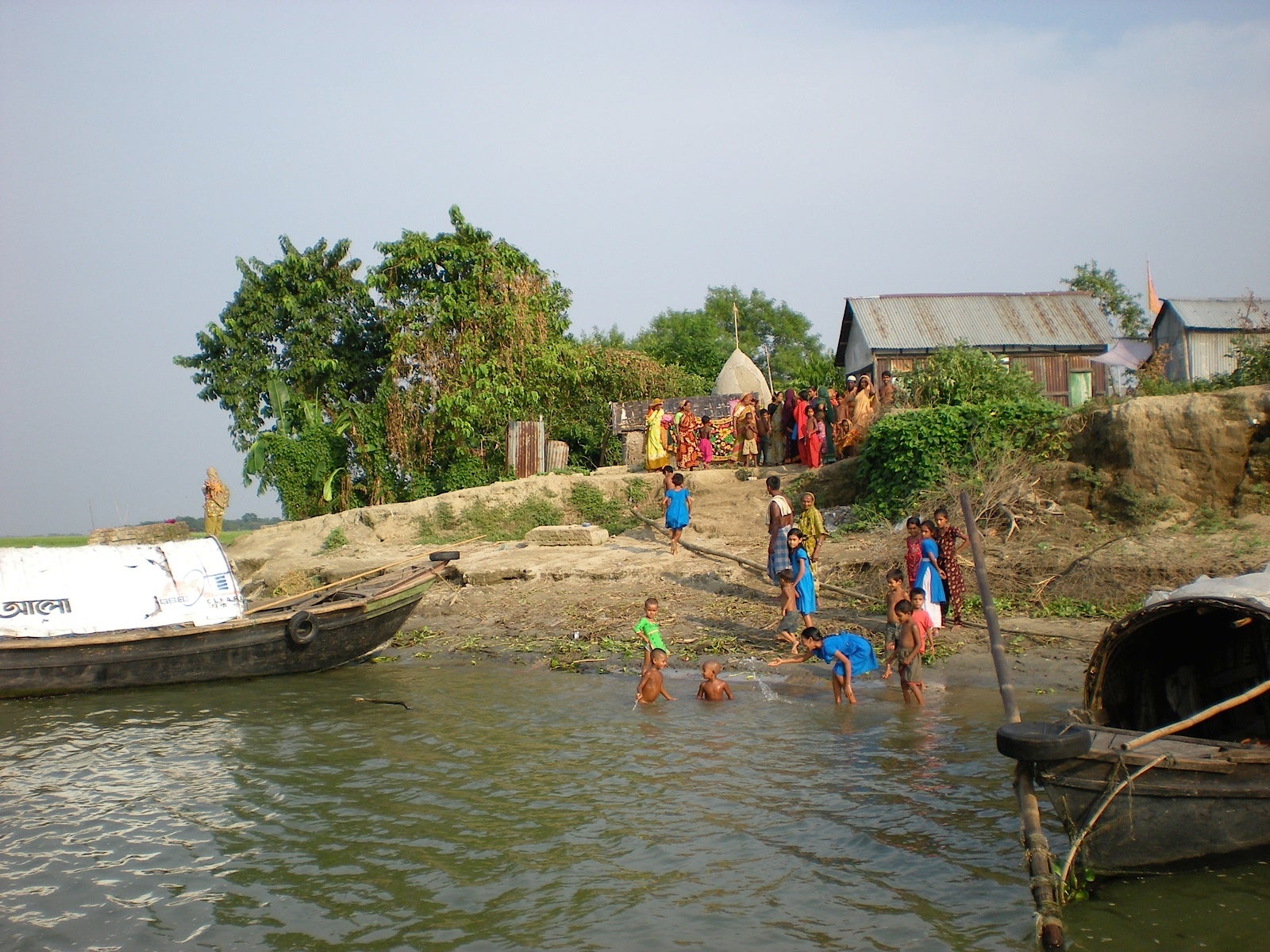The Seed lab is moving!
We are moving to the Department of Plant & Microbial Biology at the University of California, Berkeley
Our research centers on the interactions between bacteria and their viral predators (bacteriophages), and how these interactions impact human health and disease.

Phages are viruses that specifically infect bacteria and they are found wherever bacteria reside. Like all viruses, phages are obligate intracellular parasites: they are metabolically inert in their extracellular form and they need to hijack a bacterial host in order to replicate. Phages employ diverse strategies to exploit bacteria for their own replication, phages can attack and kill a target bacterium within minutes of infection, or they can establish long-term symbiotic relationships with their bacterial hosts. The interactions between bacteria and phages are central to the evolution of microbial communities, including those that contribute to our health (the microbiome) and those that cause disease.
Our lab investigates the impact of phages on the evolution and epidemiology of Vibrio cholerae, which is the causative agent of the severe diarrheal disease cholera. As a waterborne disease, cholera is a serious threat in areas of the world where sanitation is poor and access to safe drinking water is limited. Cholera is endemic in over 50 countries and also causes devastating epidemics; alarmingly, the incidence of cholera is steadily increasing and the global disease burden is currently estimated to be 3-5 million cases annually. Phages that specifically infect and kill V. cholerae are thought to modulate the inter-epidemic persistence of V. cholerae in the environment, thus impacting the occurrence and severity of outbreaks; however, uniquely, these phages also travel with V. cholerae into the human host and continue to prey on their bacterial host during infection. Therefore, phages have the unique potential to impact all aspects of the V. cholerae life cycle (including environmental persistence, infectivity and dissemination), on both a short and long-term evolutionary scale.



